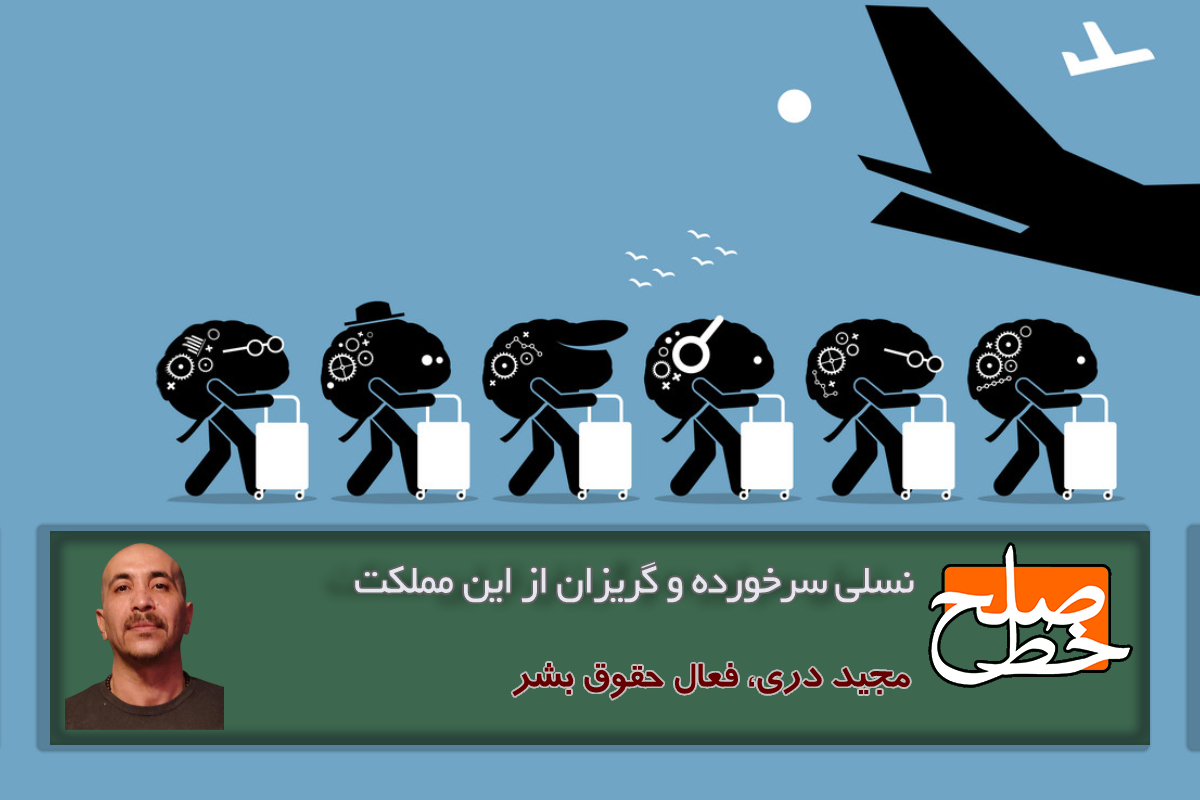
اییDisappointed and fleeing from this country / Majid Daryaei
Observational learning theory, also known as learning through modeling, which some psychologists, including Bandura, have emphasized, is based on the idea that individuals will be influenced by various models, whether they want to or not.
The progress of technology and the increasing speed of its branches bring about different teachings. This very fact has created a deep generational gap between today’s youth and yesterday’s, making it very difficult to understand each other if not impossible. Interestingly, this difference is not only visible between different decades, but even within less than a decade (with an age difference of 5-6 years) we can witness this gap.
The title of a university research entitled “Power Structure and Values Influencing Iranian Behavior (1)” has been chosen, which explores the various intellectual factors that have caused Iran to fall behind other countries, known as “underdevelopment”. This chronic pain has always prevented the use of words such as freedom, justice, prosperity, etc. from being understood and implemented in this land, and has instead created a prevailing concept.
Underdevelopment in its various forms, including political, social, economic, and cultural, is prevalent in the oppressed society of dictatorship. The ruling ideology, which sees no solution for survival other than force, oppression, and massacre, resorts to deception and evasion of political accountability by creating distractions. This leads to the collapse of political integrity, censorship, and the labeling of any opposing political voice as a threat. This censorship and suppression, along with the accumulation of desires, creates a selfish and degraded generation that is handed over to a society ruled by the same oppressive regime. Feeling the instability at its core, the regime resorts to coercion and threats, expanding its security measures and encroaching on the private lives of individuals. It replaces virtues with imaginary taboos, lies, and hypocrisy, which undermines the strength of any generation.
This process breeds a generation without identity. The principle that is replaced in its absence is one that belongs to others, and as a result, the remaining generation has no connection to the land and no will to build. The detachment from traditions and the embrace of the modern world without a proper background has led to the destruction of the structure of tradition and the loss of modernity. The easy accessibility of modern forms, which have no roots, is taken and mixed with traditions that have been accumulated in the minds for years, creating a fusion that neither the present nor the future can rely on. Consequently, one becomes frustrated and hopeless, either just watching or constantly fearing the opportunity for revenge from those who have lost their power. Social responsibility is seen as an abstract concept and the generational gap has made even common conversations difficult and incomprehensible.
With all these qualities, they possess a power among themselves that, with the help of social networks and their good understanding of it, they can achieve their goals. If they wish, they can become a “trend” on Twitter in no time. Without even seeing each other once, they make group plans (such as meeting at Kourosh Complex) and stand fearlessly against law enforcement. A generation of intelligence and rebellion. A generation that makes every effort to escape from this “ruined” state and experience a “normal” life. Behram Salavati, the director of the Migration Group at the Policy Research Center for Science and Technology at Sharif University, claimed in an interview with the media in 1998 that: “Contrary to claims that Iranians are the third largest group of people seeking migration in the world, according to Gallup’s report, Iranians do not rank among the top 20 countries in terms of people inclined to migrate relative to their population.” However, he
But if we overlook these statistics, the desire of individuals to migrate in society is an undeniable reality. Even if this is not possible, despair from the change in conditions, worsening economic situation, inflation, rent, closed social space, and countless other reasons have caused those who have the opportunity to leave and see the conditions as favorable, even if they do not want to, to succumb to the pressure of others and take action. Many initially leave with the intention of returning for the excuse of education and work abroad, but when they taste the different lifestyle and see the regrets of those who stayed behind, they give up on returning and try to find a way to stay. Among young people, this dual space has turned into an unparalleled competition and they are looking for a way to satisfy this feeling and leave.
It is essential to note that before the revolution, individuals, even if they went abroad for education, would make every effort to return to their “motherland” in order to have the smallest contribution to its growth and prosperity. The well-being of the community was prioritized over individual and familial well-being, which was considered a moral attitude [constructive spirit].
This text does not mean to approve of the previous generation and destroy the current generation. It is mostly a brief speech to recognize a frustrated generation; to provide solutions; to bridge the gaps and understand the discourse between generations.
Notes:
1. Ganbari Barazian, Ali, Nazari Moghadam, Javad, and Bahestani, Majid, The Structure of Power and Values Influencing the Behavior of Iranians Using Content Analysis of Guild Manifestos, Strategic Policy Research Quarterly, Year 3, Autumn 1393, Issue 10 (No. 40).
2. Iran not being on the list of leading countries in terms of population inclined towards migration, ISNA, 25 Shahrivar 98.
Tags
45 Number 12345 Majid Darya Monthly Peace Line Magazine peace line The daily problems of today's youth. The problems of young people Youth ماهنامه خط صلح